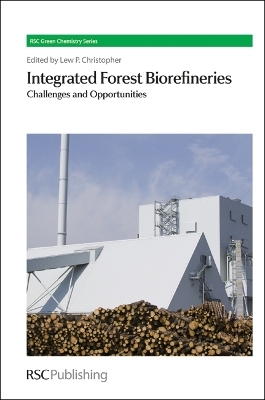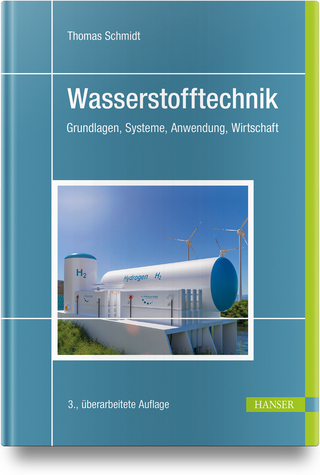
Integrated Forest Biorefineries
Royal Society of Chemistry (Verlag)
978-1-84973-321-2 (ISBN)
- Lieferbar (Termin unbekannt)
- Versandkostenfrei
- Auch auf Rechnung
- Artikel merken
This reference book describes how bioprocessing and biotechnology could enhance the value extracted from wood-based lignocellulosic fiber by employing both biochemical and thermochemical conversion processes. It documents recent accomplishments and suggests future prospects for research and development of integrated forest biorefineries (IFBR) as the path forward for the pulp, paper and other fiber-processing industries. This is the only book to cover this area of high economic, social, and environmental importance. It is aimed at industrialists and academics from diverse science and engineering backgrounds including chemical and biotechnology companies, governmental and professional bodies, and scholarly societies. The Editor and contributors are internationally recognized scientists and many are leaders in their respective fields. The book starts with an introductory overview of the current state of biorefining and a justification for future developments. The next four chapters deal with social, economic and environmental issues related to regulations, biomass production and supply, process modelling, and life cycle analysis. Subsequent chapters focus on the extraction of biochemicals from biomass and their potential utilization to add value to the IFBR prior to pulping. The book then presents, compares and evaluates two types of forest biorefineries based on kraft and organosolv pulping. Finally, the book assess the potential of waste biomass and streams, such paper mill sludge and black liquor, to serve as feedstock for biofuel production and value-added biomaterials through both the biochemical and thermochemical routes of biomass bioprocessing. The economics of the described IFBR processes and products, and their environmental impact, is a major focus in most of the chapters. Practical examples are presented where relevant and applicable.
Professor Lew P. Christopher has twenty years experience in wood science, the pulp and paper industry, biotechnology, and bioprocessing. His research output exceeds 230 scientific contributions including peer-reviewed papers, book chapters, technical reports, invited lectures, and conference presentations. He is also the inventor of several international patents. For eleven years, Professor Christopher worked in research and development at Sappi, a large international pulp and paper company. He was also Affiliate Professor at the University of the Free State and University of Pretoria in South Africa. Now Director of the Center for Bioprocessing Research and Development at the South Dakota School of Mines and Technology, Professor Christopher leads a large team developing technologies for production of biomass-derived biofuels and value-added bioproducts. He is also on the Editorial Board of several international journals and is an active member of a number of professional societies. He has chaired sessions at various international biotechnology conferences and, in 2004, organized the 9th International Conference on Biotechnology in the Pulp and Paper Industry. Dr Christopher is currently serving on the National Science Foundation Industrial Advisory Board of the Industry-University Cooperative Research Center on BioEnergy R&D and on the International Scientific Advisory Committee on Renewable Resources and Biorefineries.
Preface;
Integrated Forest Biorefineries: Current State and Development Potential;
Economic and Policy Aspects of Integrated Forest Biorefineries;
Integrated Forest Biorefineries: Sustainability Considerations for Forest Biomass Feedstocks;
Integrated Forest Biorefineries: Product-Based Economic Factors;
Integrated Forest Biorefineries: Industrial Sustainability;
Prehydrolysis Pulping with Fermentation Coproducts;
Niche Position and Opportunities for Woody Biomass Conversion;
Lignin Recovery and Lignin-Based Products;
Integrated Forest Biorefineries: Gasification and Pyrolysis for Fuel and Power;
Biohydrogen Production from Cellulosic Biomass;
Integarated Technology for Biobased Composites;
Subject Index
| Erscheint lt. Verlag | 29.11.2012 |
|---|---|
| Reihe/Serie | Green Chemistry Series ; Volume 18 |
| Verlagsort | Cambridge |
| Sprache | englisch |
| Maße | 156 x 234 mm |
| Gewicht | 627 g |
| Themenwelt | Naturwissenschaften ► Biologie ► Ökologie / Naturschutz |
| Naturwissenschaften ► Chemie ► Organische Chemie | |
| Technik | |
| ISBN-10 | 1-84973-321-X / 184973321X |
| ISBN-13 | 978-1-84973-321-2 / 9781849733212 |
| Zustand | Neuware |
| Informationen gemäß Produktsicherheitsverordnung (GPSR) | |
| Haben Sie eine Frage zum Produkt? |
aus dem Bereich


